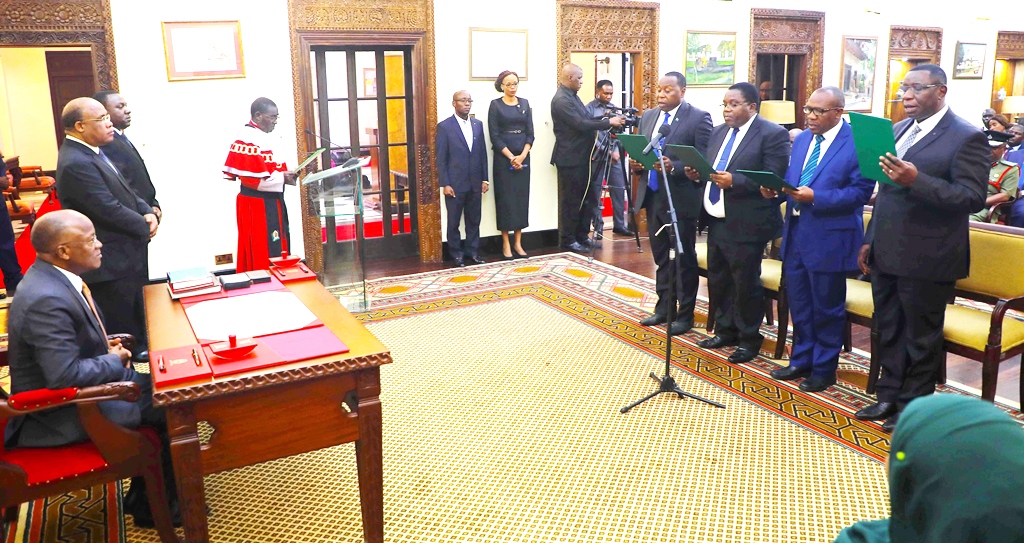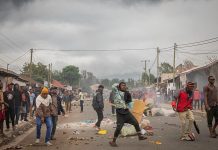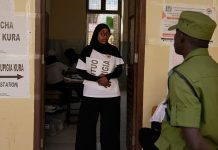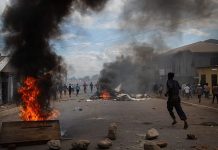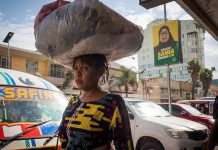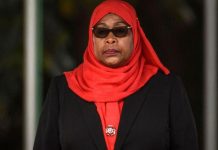PRESIDENT John Magufuli has tasked four newly sworn-in high commissioners to rigorously embark on economic diplomacy by exploring new areas of development cooperation in countries to which they have been posted.
He was speaking at the State House in Dar es Salaam shortly after swearing in the ambassadors who have been posted to four African countries, three of which are member states of the Southern African Development Community (SADC).
“The countries to which you have been assigned have huge potentials for the economic development of our country. You should thus exploit those opportunities,” he told the envoys.
The high commissioners who were sworn in are former Director General of the Tanzania Intelligence and Security Services (TISS), Dr Modestus Kipilimba, who has been posted to Namibia and former senior lecturer at the University of Dar es Salaam (UDSM), Dr Benson Bana (Nigeria).
Former Permanent Secretary in the Ministry of Natural Resources and Tourism, Maj Gen (Rtd) Gaudence Milanzi will be based in Pretoria, South Africa whilst Prof Emmanuel Mbennah has been posted to Harare, Zimbabwe.
Dr Magufuli urged them to report to their work stations within a fortnight and perform their duties in accordance to the law and interests of Tanzanians.
Earlier, the Minister for Foreign Affairs and East African Co-operation, Prof Palamagamba Kabudi, instructed envoys to make close follow ups on areas of cooperation which were agreed upon between President Magufuli and the Heads of State of Namibia, Zimbabwe and South Africa.
Dr Magufuli visited the three countries last year for state visits, during which he entered into cooperation agreements with the presidents of those countries in various sec tors of the economy.
In South Africa, President Magufuli attended the inauguration of President Cyril Ramaphosa, followed subsequently by a state visit.
Dr Magufuli’s visit to South Africa was a blessing to Tanzanians as it paved the way for Kiswahili teachers to land teaching jobs in primary and secondary schools in the rainbow nation.
“President Magufuli undertook personal efforts to secure jobs for our teachers in South Africa but we somehow messed up along the way. The new envoy should hence make efforts to make use of the opportunity,” Prof Kabudi told the new Tanzania High Commissioner to Pretoria, Maj Gen Milanzi.
The trade volume between the two countries was 2.68trl/- (about 1.16 billion U.S. dollars) in 2018 from 2.52trl/- recorded in 2017.
As for Namibia, Prof Kabudi cited major areas of cooperation as sharing experience on fishing in the deep sea and processing of livestock products.
Tanzania also has a potential of selling food crops to Namibia.
During his visit in Windhoek, President Magufuli called for swift actions from the joint permanent commission between Namibia and Tanzania to review and operationalise the cooperation agreements signed by the two countries since 1991.
Dr Magufuli, who was hosted by President Hage Geingob, was disappointed by the level of trade between Namibia and Tanzania, given the cooperation and history between the two countries.
The two countries have not reviewed or enhanced their bilateral relations since establishing a joint permanent commission in 1991.
He thus urged for the commission to discuss in details the areas of cooperation and explore new ones.
Available figures show that the trade volume between Dar es Salaam and Windhoek stood at just US 25 million dollars in 2018.
Dr Magufuli also requested the Namibian government to introduce the teaching of Kiswahili in its education system.
Last year, member states of SADC approved Kiswahili as among the official languages of the regional grouping. Kiswahili is the 10th most widely spoken language in the world.
In Africa, it is spoken in 14 countries, of which six are SADC member states.
“We hope that Namibia will follow in the steps of other African countries which have introduced Kiswahili into their education systems, such as South Africa and Rwanda. “Tanzania will provide Kiswahili teachers and other learning materials as a way of training Namibians to become Kiswahili teachers. I am very keen on seeing things happen,” he then remarked during his two-day state visit in Namibia.
During the same occasion, President Geingob emphasised the need for the governments of the two countries to increase efforts to review “all aspects which were agreed upon, and to come up with a concrete and practical plan of action to revitalise our cooperation.. “Let us join our efforts and resources to improve the livelihoods of our people. We should build a partnership for growth and development, focusing on key issues such as agro-processing, the valueaddition of minerals, manufacturing, and logistics,” he said then.
For Zimbabwe, Prof Kabudi said the major focus as agreed by member states of SADC is to push the international community to lift economic sanctions against that country.
While in Harare last year, Dr Magufuli appealed to the international community to lift the sanctions so that ordinary Zimbabweans, especially women and children, are spared of conomic hardships.
As for Nigeria, Prof Kabudi urged Dr Bana, who will be serving 16 countries in West Africa, to explore cooperation with Ivory Coast in farming and value addition, particularly, cashew nuts and coffee.


